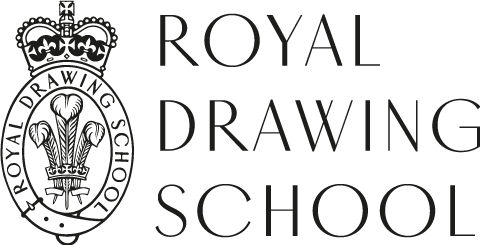Equal Opportunities Policy
The Royal Drawing School’s Equal Opportunities Policy embodies its vision to integrate equality and diversity into all areas of the School’s ethos, policy and practice.
The rich diversity of our students, artist faculty, staff and alumni is core and vital to the School’s unique reputation for the teaching and practice of drawing. Our diversity informs our practice-led teaching and learning traditions, our innovation and our employment practices. Our vision is underpinned by the following values that we will work towards:
- We believe that equality and diversity is integral to our inclusive teaching, creative innovation and global reputation. We are committed to addressing inequality and celebrating diversity in order to sustain an accessible and inclusive environment for all of our stakeholders.
- Reminding, developing and supporting our artist faculty, staff, students and trustees in understanding how equality and diversity is meaningful and relevant to the School on an individual, collective and institutional level.
- Prohibiting unlawful discrimination, harassment or victimisation on grounds of age, disability, gender reassignment, marriage and civil partnership, pregnancy and maternity, race, religion or belief, sex, sexual orientation and whether such an identity is actual or perceived or whether this is by association with persons from any of these equality strands. Non-compliance will be investigated seriously within the School’s complaints and disciplinary procedures.
- Complying with the requirements of equality legislation and fulfilling all our statutory and regulatory duties.
- Aiming to increase the presence of those traditionally under-represented.
- Regularly monitoring the recruitment, progress and experiences of all students and staff, paying particular attention to those protected in the aforementioned equality strands.
The Student Experience
Students will have a holistic School experience which is positive, fair and inclusive, from application to opportunities for employment and volunteering. To this end, we will work towards:
- Application — encouraging applications from a diverse range of potential students.
- Admission — basing admissions solely on the student’s ability to meet the requirements of the selection criteria for competitive admissions and their potential to benefit from a successful completion of study. We aim to ensure that students of all backgrounds are not discriminated against at all points of the admissions process.
- Induction — making all our students aware at induction of the ways in which this Policy affects them and their rights and responsibilities in relation to equal opportunities.
- Academic Progression — providing academic guidance and tutoring to support academic progression and with recognition and sensitivity to the different needs of students in relation to further education, undergraduate and postgraduate study.
- Curriculum and Course Design — regularly reviewing the design and content of our teaching to ensure that it is appropriate for our diverse student body and is compliant with our commitment to equality and accessibility.
- Assessment — ensuring that no bias exists in our assessment policy and practice and making reasonable adjustments to assessment methods to meet the needs of disabled students.
- Student Support Services — offering support services that provide information, advice, guidance and counselling sensitive to the background, learning and support needs of all students.
- Complaints and Appeals —all students will be made aware of the mechanism for reporting instances of discrimination or harassment through the School’s complaints procedure.
The staff experience
This policy covers every aspect of the employment of staff, and will be issued to all following appointment at the School. Working in the ways described will mean we recruit and retain staff of the highest quality who will be motivated by the creative and diverse environment in which they work. To this end, we will work towards:
- Recruitment and Selection — ensuring that no bias exists in all stages of the recruitment and selection process. We will encourage applications through open competition and from all groups. Advertisements, placement of advertising and recruitment information will reflect this. Appointments will be made on personal merit and performance.
- Contractual Status and Work-Life Balance — where possible and on request, giving due regard to offering contracts that are appropriate to the type of work and accommodate the needs of those who wish to balance employment with caring responsibilities, reasonable adjustment needs, faith observance or other interests.
- Job Description, Pay and Benefits — through job descriptions and person specifications, job evaluation and reward policy, ensuring that there is equal pay for work of equal value.
- Induction — as part of their inductions, making sure staff, and in particular line managers, are aware of their responsibilities through diversity training and in the setting of their objectives for appraisal.
- Probation — ensuring decisions on probation are based solely on the ability of staff to undertake duties and responsibilities of the role, to the standards required, and take into consideration any reasonable adjustments made to meet individual needs.
- Ensuring that through our staff appraisal process everyone has a regular opportunity to discuss their role, contribution and development. Decisions arising from these discussions will be fair and transparent.
- Ensuring that procedures to handle complaints or conduct disciplinary matters are enacted fairly and effectively. Support and the formal procedures for redress are available for those who believe they are experiencing or for those who have received allegations against them of harassment, bullying, victimisation or any other form of unlawful discrimination.
